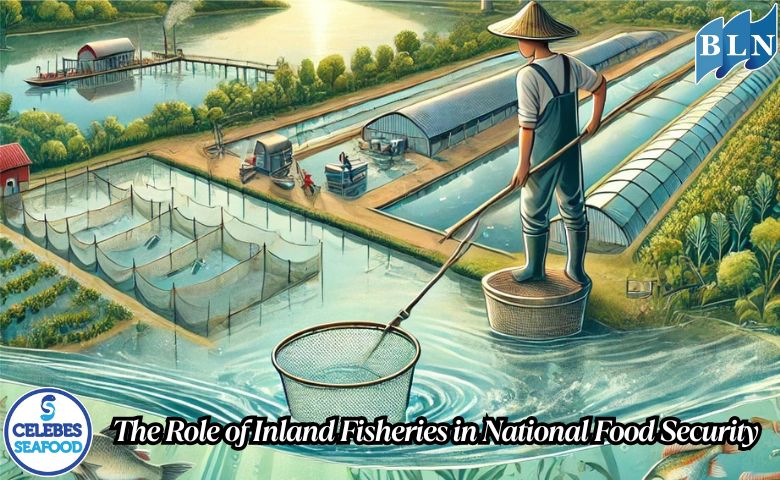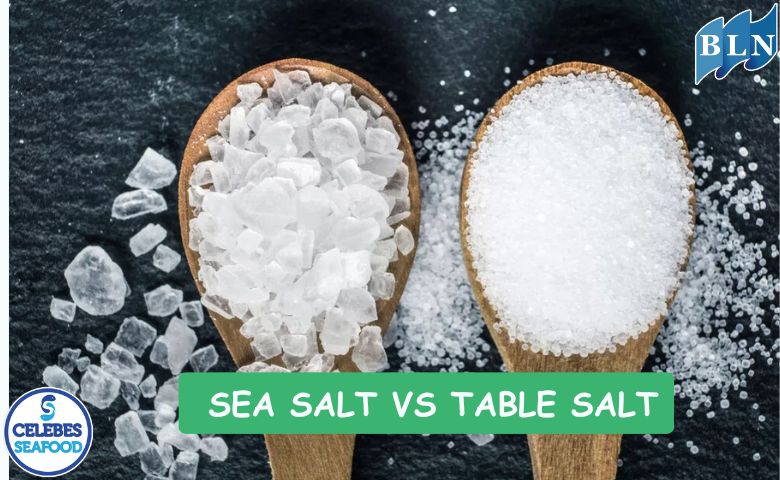The Role of Inland Fisheries in National Food Security
By. Edi - 25 Jun 2025
lautnusantara.com Inland fisheries, which include fish farming and fishing in rivers, lakes, reservoirs, ponds, and other wetlands, play a crucial role in ensuring national food security, especially in an archipelagic country like Indonesia. This sector not only provides an affordable source of animal protein for the community, but also supports the livelihoods of millions of families in rural areas.
A. Source of Superior and Affordable Protein
Freshwater fish such as tilapia, catfish, gourami, carp, and patin have long been favorite food commodities in various regions. Their high protein content, coupled with essential vitamins and minerals, make them an excellent nutritional choice. Their relatively stable availability and more affordable prices compared to several other types of meat make freshwater fish the backbone of fulfilling people's nutritional needs, especially in areas far from the coast. Production from inland fisheries helps reduce pressure on marine resources and diversify sources of animal protein for domestic consumption.
B. Driver of the Rural Economy
In addition to the nutritional aspect, inland fisheries are also a driver of the rural economy. Thousands, even millions, of households depend on this sector for their livelihoods, either as cultivators, fishermen, traders, or workers in the small-scale fish processing industry. Fish farming, especially on a household or group scale, is often a promising side business or even a primary livelihood, absorbing local labor, and driving economic turnover at the village level. Government programs and private initiatives that support the development of fish farming in villages have been proven to increase community income and welfare.
C. Challenges Faced
Despite its great potential, inland fisheries also face a number of challenges that need to be addressed:
- Environmental Degradation: Water pollution from domestic, agricultural, and industrial waste is a serious threat to the health of inland water ecosystems. Sedimentation and erosion can also reduce the carrying capacity of waters.
- Overfishing: Irresponsible fishing practices, such as the use of illegal fishing gear (electricity, poison, fish bombs) and overfishing, can reduce fish populations and damage their habitat.
- Climate Change: Changes in rainfall patterns, increasing water temperatures, and droughts can affect water availability, water fertility, and fish life cycles.
- Limited Access to Capital and Technology: Small-scale fish farmers often have difficulty accessing capital for business development and adoption of more modern farming technologies.
- Disease and Pest Outbreaks: Disease outbreaks in farmed fish can cause significant economic losses for farmers.
- Infrastructure and Governance: Limited supporting infrastructure such as processing and marketing facilities, as well as suboptimal governance, can hamper the development of inland fisheries.
D. Sustainable Development Strategy
To maximize the potential of inland fisheries and overcome its challenges, a comprehensive and sustainable development strategy is needed, including:
- Education and Counseling: Increasing public awareness of the importance of preserving aquatic resources and responsible fishing practices.
- Supervision and Law Enforcement: Tightening supervision of illegal fishing practices and law enforcement for violators.
- Sustainable Aquaculture Development: Encouraging the adoption of environmentally friendly aquaculture technologies, efficient feed management, and biosecurity practices to prevent the spread of disease.
- Ecosystem Revitalization: Conducting rehabilitation and restoration efforts for damaged aquatic ecosystems, including planting riparian vegetation and reducing pollution.
- Human Resource Capacity Building: Training fishermen and cultivators in sustainable fishing techniques, modern cultivation management, and fishery product diversification.
- Institutional and Partnership Strengthening: Encouraging the formation of strong fishermen/cultivator groups and establishing partnerships with the private sector, academics, and research institutions.
- Processed Product Development: Encouraging the diversification of freshwater fishery products into processed products with high added value to increase income and expand markets.
Inland fisheries are an important pillar in realizing Indonesia's national food security. By providing affordable protein sources, driving the rural economy, and offering broad development potential through innovation, this sector must continue to be empowered and preserved. Collaborative efforts between the government, communities, academics, and industry players will ensure that the full potential of inland fisheries can be realized for a stronger and more sustainable food future.


.jpg)

.jpg)
 The Tough and Useful Natural Aquarium Cleaner.png)

